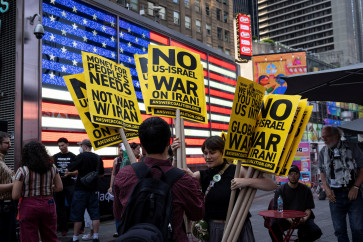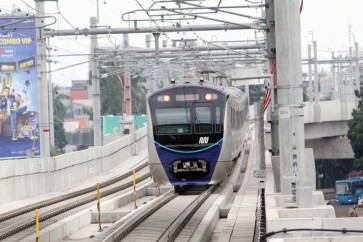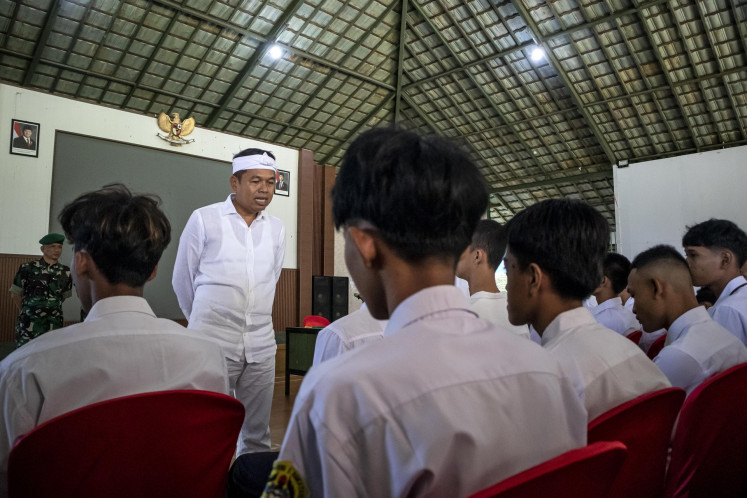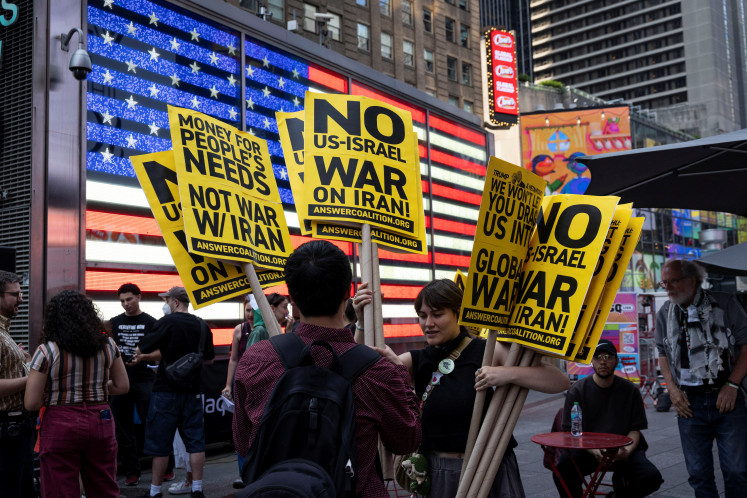Indonesians among int'l buyers of property in Singapore
As one of the property investment choices for international investors, Singapore also attracts discerning Indonesians for several reasons, such as financial gains and good prospects for leasing purposes
Change text size
Gift Premium Articles
to Anyone

A
s one of the property investment choices for international investors, Singapore also attracts discerning Indonesians for several reasons, such as financial gains and good prospects for leasing purposes.
When it comes to property as a long-term profitable investment choice, several affluent Indonesians do not confine themselves to their country but have expanded to other countries.
Affluent Indonesians are found among international buyers of property in Singapore, one of the world's major commercial hubs. They have chosen to buy property in the island-state for various investments: they lease the property, utilize it for personal use or give it to their children who study in the country.
Data at Singaporean property developer Far East Organization shows that 12 percent of property in Singapore is owned by foreigners, of which Indonesians make up 15 percent. The top two foreign property owners in the country are Chinese, which make up 35 percent of the total foreign ownership, and Malaysians, which make up 32 percent of the figure.
Aside from the foreign owners, the country's property owners comprise 72 percent Singaporeans, 15 percent permanent residents and 1 percent businesses.
Indonesian Property Watch (IPW) executive director Ali Tranghada said although he did not have a precise figure of the increase of Indonesian property buyers in Singapore, he reckoned that the number of Indonesians who bought property in the island-state had increased significantly since 2005.
'At that time, Indonesia had started to recover from the 1998 crisis and many Indonesians felt that Singapore was a safe place for them to invest in property,' he said at a recent media gathering in Jakarta.
According to Far East Organization property sales team leader Teddy, this trend can be attributed to the financial advantages of buying property in Singapore when compared to that in Indonesia.
'First of all, the mortgage interest rate in Singapore is 2 percent, much lower than that in Indonesia, which amounts to 12 percent,' he said during the media gathering.
While Indonesia's mortgage system requires customers to complete their payments within a maximum 15 years, Singapore's mortgage system requires customers to do so within a maximum 30 years.
He said that Singaporean property had a good rental yield of around 3 to 5 percent.
Ali added that although the rental yield was slightly lower than that in Indonesia, which amounted to eight percent, it was much easier to find tenants in Singapore than in Indonesia. Therefore, Singapore has good prospects for those who want to buy property for leasing purposes.
Aside from being motivated by financial gains, people who invest in Singaporean property are also lured by the solid warranty provided by the developers.
Far East Organization chief representative Margaret Bong said that to protect customers from delayed projects or unscrupulous developers, the Singaporean government imposed fines amounting to 6.75 percent of the total money paid by customers for the project if it was not completed within the agreed deadline.
'Further, buyers pay the construction money according to progress achieved in the house or apartment construction. So you need to pay for floor construction only after it is finished,' she said during the media gathering.
According to her, the payment price is done in nine separate installments based on significant milestones made on the construction.
'By the time the home or apartment key is handed to you, you have to pay only up to 85 percent of the total price. Then developer staff members will come to check your house. You need only to pay 100 percent after it is confirmed that there's nothing wrong with your house,' she said.
She added that houses and apartments in Singapore had a one-year warranty period.
More comfortable
Teddy added that another good motivator for Indonesians to buy property in Singapore was the fact that the city was relatively more comfortable than Jakarta, in terms of environmental quality and public facilities.
Singapore's air is less polluted than that of Jakarta and Hong Kong. Meanwhile, the traffic jams there aren't as terrible as those in the two cities previously mentioned, he said.
Singapore's better air quality and traffic is due to the country's solid mass rapid transportation (MRT) system, which has curbed the number of private vehicles operating in the country.
Public facilities are also a good motivator. Singapore has plenty of green open spaces for its citizens to enjoy.
In its development master plan this year, Singapore plans to expand its MRT system and expressways. It also plans to add more green open spaces within the area.
Taking into consideration Indonesia's eagerness to invest in Singaporean property, the company has had a branch in the country for 10 years.
Further, aside from enticing Indonesian customers to buy its property in Singapore, the company has apparently set its eyes on expanding its business in Indonesia.
Managing hotels
The company, for example, has signed a contract to manage two hotels in Bali and Bintan, Riau, under its hospitality brand. The company, however, does not have any plans to construct any hotels in Indonesia yet.
'We choose to manage the two hotels in Bali and Bintan because we have strong local partners there. Strong and established local partners are very important to our efforts in navigating Indonesia's business,' Lay See said, adding that so far the company did not have any plans on expanding its business in Jakarta because it was still looking for established local business partners to accomplish that goal.
She said she was optimistic that the new Indonesian government would create a positive business climate for property investors.
'I hope that the new government will create a business-friendly environment so that Indonesia can grow together with other ASEAN countries,' she said.
She added that she was thankful that the political tension resulting from the recent presidential election had started to fade, thereby boosting investor confidence in Indonesia again.
Margaret said that the new government needed to maintain the stability of property prices in order to prevent them from rising steeply and eventually create a property bubble.
To maintain the stability of property prices, last year Bank Indonesia (BI) increased the minimum down payment for additional property purchases and set other requirements for the regulation.
Under the new regulation, BI reduces the loan-to-value (LTV) ratio for the purchase of a second property ' for landed properties and apartments measuring more than 70 square meters ' to 60 percent and lowers it to 50 percent for purchases beyond the second property.
The 60 percent and 50 percent LTV ratios means that customers must pay 40 and 50 percent of the property price, respectively, as a down payment.









